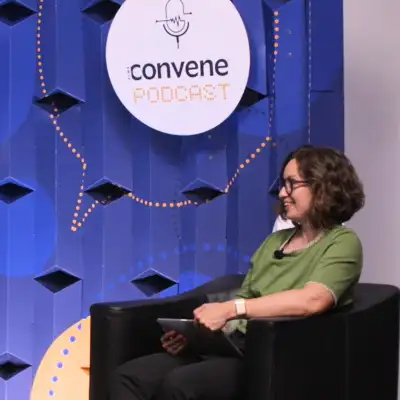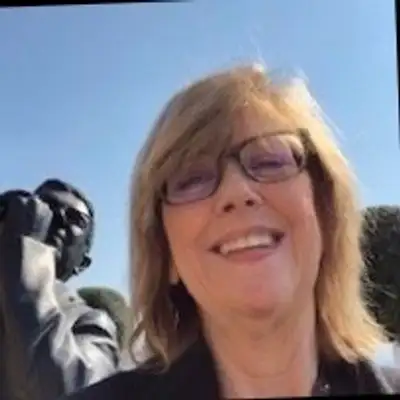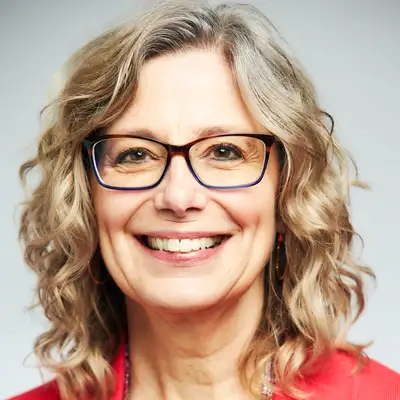Creators and Guests
What is PCMA Convene Podcast?
Since 1986, Convene has been delivering award-winning content that helps event professionals plan and execute innovative and successful events. Join the Convene editors as we dive into the latest topics of interest to — and some flying under the radar of — the business events community.
Convene Talk, ep. 62/May 9, 2025
*Note: the transcript is AI generated, excuse typos and inaccuracies
Magdalina Atanassova: This is the Convene Podcast. Welcome to another episode of the Convene Talk. Michelle, what have you picked for today's discussion?
Michelle Russell: Thanks, Maggie. I picked an unusual story that was published in Axios and it's called Tariffs Loom as the Elephant in the Room at ted.
And it was about how all of this stuff was happening, all this chaos was happening with tariffs, and TED itself is a little bit in turmoil while the event was taking place.
And TED is like this iconic, as everybody knows, event that has been taking place in Vancouver for the last few years.
And it is a very elite and expensive gathering. But people were talking about how it was really difficult to be fully immersed in the program while all of this stuff was happening outside the program.
And it just felt very real to me because I think we have all been had the experience and I think people forget about it. The experience of attending an event where you really are trying to make sure that you get, you know, every last ounce of value out of it by going to sessions,
talking to people and being fully immersed in that world and yet recognizing that there's stuff happening back home that you need to attend to back at your job that you need to attend to,
and how you kind of navigate those two things at the same time.
And then TED itself,
Chris Anderson, who has been the longtime organizer, has had a plan to step down. They've retained a banker to see which organization, business or institution is best served suited to run the conference going forward.
More than 60 entities have expressed interest so far,
so that sort of thing is uncertain.
And then inside the room, the tension, according to the article, was palpable, particularly on the first day of the conference. One attendee told the reporter, there's a lot of why am I at TED when the world is exploding?
And then at dinners around Vancouver on Tuesday, where obviously there are a lot of people from the United States and around the world. In Canada, many attendees tried to shrug off the worries at a wine tasting.
One person saw the news of a 104% tariff on China and lifted a glass and said, oh well,
so there is that.
I guess there was the tension and there was a mood. And then, then Trump lifted the tariffs for a 90 day pause and that lighten the mood. But then people were looking at the stock, the stock exchange going down.
So it was just an interesting article that I think was very relevant to what happened at TED in this one specific time. But also it's just something to keep in mind for planners when you recognize that your attendees are trying to really immerse themselves in the program, but they also have other things they need to focus on.
So do you allow for that? And it reminded me of what we have done at Convening Leaders, where there have been lounges for people to come and just take a break from the activities without missing any of the sessions.
And at one event, they were really organized around, like, the level of conversation you needed to have. So there were open tables where people could have, you know, strike up a conversation with someone who just happened to sit next to them or have a planned meeting with someone.
There were more kind of private areas in the lounge where they could have a quiet conversation with someone. And then there were actual, like, pods where people could go and sit, even to do like, a, you know, a conversation online with someone on their laptop.
So I think having those things is really valuable for people who, instead of, like, I have to leave here to go back to my room at the hotel and take care of something that's happening at home or at the office, they can still do it on site.
They're not missing any of the program, and then they can get back to their regularly scheduled program after taking that break. So I'm wondering what everybody else thought after reading the article.
BARBARA well, you know what?
Barbara Palmer: I was just thinking that the article was.
It was slight in a way, that there wasn't any consensus, any conclusion. I thought it was a really good snapshot, just the. The uncertainty that's there. Like, that was the topic.
It did inspire me to go and look a little bit at what ted's theme was. And the theme was humanity reimagined with a real emphasis on AI.
And it was really kind of like the reinvention of the experience of being human by AI.
And it did draw to me just kind of the insights that it's so hard to know what's going to be happening when you plan your meetings. I think we've all been talking about the acceleration of the speed at which change happens and trying to get ahead of that.
And I feel like this really showed how hard it is that, as you said, Michelle, to have places to process the new things that are happening are really, really important.
Magdalina Atanassova: I think it just shows how hard it is to keep with news nowadays in general,
because every day something happens at some part of the world,
and especially at big international meetings, you would have a mix of people that would be affected in different ways. So catering for that variety of viewpoints and just giving them the freedom to express themselves.
I think first is the point of meetings and why we Gather to collaborate, to learn about each other, to support each other.
But I do believe planners are taking note of that and trying to make accommodations. Nowadays, I don't think it's strange to see different kinds of attendees. So there are those that are really immersed in the program.
They try to shut the rest of the world out, and those that really want to stay connected, and that's totally fine. I actually had a conversation during convening leaders with an attendee,
and she said, you know,
this time I decided to attend more than just the keynotes for each event. I make a plan what I want to attend. Sometimes it's just a keynote, sometimes it's just a couple of breakouts.
And then I take care of my business because I have my own business and there's no one else that can cover for me. And I said, well, that's really understanding your ecosystem and what's happening in your life and working around it, making it happen.
So I was like, I have a lot to learn from you on how to manage my time, not only at events, but in general, because that's really commendable. But that's the reality of things.
I think the whole news about TED found me unprepared.
TED has always been there in such a distinct way. And just the idea of it changing so drastically.
Yeah, I don't know what to make out of this. This, for me, was the bigger news in the article.
Michelle Russell: Well, also, they're changing destinations, so they have one more year in Vancouver, and then they're at some. They're returning to California at some undisclosed location. But we've written about how hosting TED really influenced Long beach when they were there, and the way that they have designed their event spaces.
Barbara Palmer: Yes. Yeah. And how they use their town that. I mean, you know, TED was really way ahead in terms of understanding that people come to hear the speakers, but they come to talk to each other and meet each other and that they really just use the town as kind of a backdrop for all kinds of,
you know, here we'll meet and you'll. We'll give you all a picnic basket and just walk down to the beach and get to know each other.
I was thinking about.
I would be so interested to know, because I know that TED talks are highly rehearsed. They're a very set amount of time,
and people rehearse and they work with coaches,
and it would just be interesting to know if any of the speakers then changed anything about what they were saying.
That would be a question. I would love to know whether just in light of the changes in the world. If the theme is reinvention, we're going to have to reinvent ourselves.
That was certainly a really apt theme if it wasn't quite along the lines of what people might have been thinking.
Michelle Russell: Yeah. It'd be interesting to know if anybody went off script, just, you know, because again, it's like the elephant in the room. You can't pretend if something momentous is happening in the moment,
it doesn't make sense to completely ignore it. So it would be interesting, even like an aside comment or injecting something that's humorous to acknowledge what's happening.
Barbara Palmer: Yeah.
Magdalina Atanassova: Didn't it say in the article that there were comments in between the talks from some of the speakers, but not during their actual speeches? And it was just because, as Barbara said, they're so well rehearsed and planned months in advance, so it was hard for them to just.
Michelle Russell: Yeah, they. There was a comment that from an attendee that this time the real depressing talks are happening outside the theater. So,
yeah,
usually she said the climate talks are the downers,
which is not cool. Yeah.
Barbara Palmer: It does kind of. I mean, I feel like there's this. When we talked last week, we talked a little bit about just what is the future of collaboration.
And when you look at the speakers at ted, they're from all around the world, all different kinds of disciplines, and that's part of what the magic of that format is.
I just finished writing about where insight comes from, those kind of creative leaps when people solve problems, not when they're sitting there, you know, scribbling or doing math. You know, it's like when they're at the grocery store or in the shower that they let go a little bit.
That's what happens. I think that you're kind of open.
So I feel like those kinds of spaces that are open are more needed than ever before.
Michelle Russell: And unfortunately, I think so for ted,
you pay a lot of money and you pay your own way to attend ted.
So I don't think that will go away. But the collaboration that occurs at association events where people are funded by the organization, organizations, especially if it's through a research grant or whatever,
that's really where it's very concerning to think that those things are not happening because of the cuts and the policy changes. And I also think there's just so much that's in flux right now, it's hard to focus here.
They talked about the tariffs and the economy, but I'm sure there were conversations about dei. I'm sure there were conversations about science funding being cut.
There's just so much. It's very hard to focus on one thing.
Barbara Palmer: And about travel,
I wasn't really aware about TED coming back to California. I mean, I wonder if it is going to be run by somebody else that maybe if that decision is not final.
Final.
Michelle Russell: So it's 2027 that it comes back to California,
and who knows what will happen by then. It's just everything is very uncertain. But we did see, we just worked on the Pulse survey where we asked planners how all of these changes are affecting their events.
And some of them that are outside of the US Are not holding events. They're not going to consider events the US One person said they wouldn't have an American speaker, but they deliberately chose someone from Canada.
So these are all things that are happening right now and are going to have a big effect depending on what sector you work in and what sector your event represents.
Barbara Palmer: Yeah.
Magdalina Atanassova: So it seems that the change of the slogan of TED last year was just the beginning of a lot of changes for TED as an organization and as an institution and event.
So I'm curious to see what else will change. And especially now with the change of location, I feel that Vancouver is such a good fit for them. It's such an inspiring destination.
But yeah, let's see what California will deliver. I'm sure they're very happy to get the event back.
Barbara Palmer: I think California is a great fit. Obviously,
come on back,
because I think when it was, you know, it was initially in Monterey and they outgrew that. And it's a little bit of a bubble. Like you're really able to get away there because it's remote and kind of coastal.
We'll see.
Magdalina Atanassova: Let's wrap it up then.
Thank you for the conversation.
Remember to subscribe to the Convene Podcast on your favorite listening platform to stay updated with our latest episodes. For further industry insights from the Convene team, head over to PCMA.org/convene. My name is Maggie. Stay inspired. Keep inspiring. And until next time.


